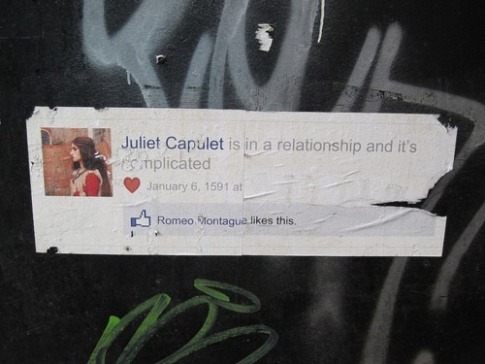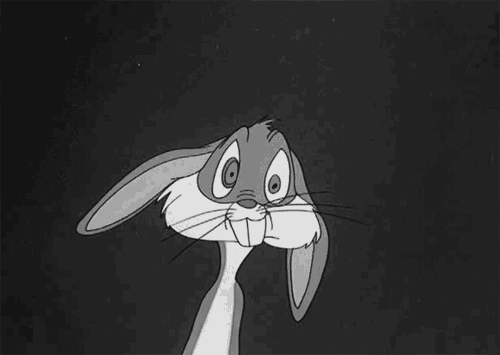Just a little warning, this post will contain spoilers for the show Bones and How I Met Your Mother, so if you are concerned about that, or are not caught up on those shows you should probably not read this.
Sitcoms and prime time television shows made spectacles of weddings way before TLC ever got their hands on the wedding reality television market. Some of the most memorable moments in our favorite sitcom TV shows involve weddings. Ross and Rachel (I mean Emily. Oops.), Fran Fine and Maxwell Sheffield, Lily and Marshall (fun fact, she insisted on keeping her last name), Bones and Agent Booth, Barney and Robin (they have a whole season surrounding their wedding, but I'll get to that later). This is just to name a few couples who had weddings on some of my favorite TV shows.
Wedding episodes in television shows often get a lot of audience attention and buildup, especially if the relationship of the two characters has been rocky or if the wedding and their marriage has been a "long-time coming." So why all the emphasis on the wedding? It's often advertised as the highlight of the show's season, or it is the season finale. Chrys Ingraham (1999),who I've mentioned before, wrote about how television situation comedies are naturalizing weddings and portraying them as a "nearly obsession" for young white women. She goes on to explain how this fixation on weddings in the media makes it appear that this is all that women care about or think about. Also she explains how this naturalization of weddings appears to reduce their life expectations to "one moment of spectacle."
For some shows, I definitely agree with her statements. Many women in TV comedies are often single and looking for "the one" and the shows documents their trials and tribulations in the dating world. The Mindy Project, How I Met Your Mother, The Nanny, Sex and the City are just a few of the countless shows where searching for love is a major story line in the show. I will focus on two shows that are currently, or have recently had television weddings on their shows, or focus on them as a major part of the story.
Monica, Rachel and Phoebe from Friends
How I Met Your Mother is a show where a male lead, Ted Mosby, tells his kids the story of how he met their mother (I know, duh.) Over the course of 9 seasons, he's told stories about his friends, about his failed relationships and his quest for "the one." Now this isn't a female led story, but I would argue that this show also shows how for a male in their 30's, marriage is desirable to show that you are serious, responsible, and ready to provide for a family, and how marriage shows that you are desirable to others. We do not know "The Mother's" identity or name, but at the end of season 8, we are finally shown her face, which is you're a fan of the show you may join me in my sentiment of FINALLY, IT'S ABOUT FREAKING TIME.

In season 5 of the show, Ted gets left at the altar by Stella, and she goes back to her ex Tony. Tony is a film producer and makes a movie called "The Wedding Bride", which ends being a re-telling of Ted and Stella's love story but told from Tony's point of view, making Ted look like a jerk, and making Tony look desirable and having him win over Stella.
Now although The Wedding Bride is fictional, it is a satirical representation of the popularity of wedding movies in Western culture. Everyone in the show is dying to watch it, including Lily's husband Marshall (but he does so secretly, because doing so openly threatens his masculinity). In the show, it is the Number One movie in many countries and is very popular. The Wedding Bride is this show's take on movies like 27 Dresses, The Wedding Singer, and Bride Wars.
Ted Mosby on a date to see The Wedding Bride
The show's current and final season, it's 9th, is entirely centered around Barney and Robin's wedding and the lead up to it. It is revealed that Ted will meet "The Mother" at Barney and Robin's wedding, so in order to create more buildup to that pivotal moment of the show, the entire ninth season takes place the weekend of the wedding.
Except we have to wait until the end of this drawn out season for it, *sigh*
Most shows have an entire episode or two that center around a character's wedding. How I Met Your Mother went even further and centered an entire season around it. Which honestly is ridiculous. Yes television naturalizes and romanticizes weddings, and I personally think that drawing out a whole season of it is ridiculous and almost de-romanticizes it (which can be good or bad depending on what end of the spectrum of weddings you're on, love or hate). I don't believe that is the creator's purpose, but as I am watching this season, I realize more and more how much of a plot device this wedding is. And of course it is, all television weddings are plot devices. But it is especially true with this one. It is not even truly about Robin and Barney getting married, it is about when Ted will meet his future wife. After all, that is the title of the show. Once Ted meets his wife, he will be whole, he will have meaning in his life, and he will finally be ultimately desired by his "true love." The fact that the show hasn't revealed her name yet irks me a little bit. She has no individual identity, only one as Ted's future wife. It's supposed to create more mystery and anticipation but I think it just places her as an object, not as an individual. We know almost nothing about her, only what Ted tells us (not that he tells us much anyway). She has had interaction with other characters which has revealed little bits of her personality, but ultimately her purpose on the show is to fulfill Ted's dream of meeting "the one."

An advertisement for the wedding episode of the show Bones
The second show I am going to talk about it Bones. Bones is a crime/drama show about a forensic anthropologist, Temperance Brennan and her team and how they solve murder cases from examining remains. Bones is Temperance's nickname. She is an incredibly intelligent woman, (although she doesn't have a lot of social tact) has studied a vast amount of cultures, knows a lot about cultural traditions and cultural beliefs, but often does not understand pop culture references in American culture, which is where a lot of the humor of the show comes from. She doesn't believe in God, is very non-traditional overall. Over the course of the show starting at the end of season six a relationship between Temperance Brennan and Agent Seely Booth begins. In season seven they have a daughter together, but are not married. Booth expresses a desire to get married, and Bones doesn't see the point of marriage and thinks they can be happy as they are.

A fanmade image, showing how much audiences love romance in television.
Over the course of the next season, Bones realizes that being married would make Booth happy, so she tells him that she wants to marry him, and they become engaged. Throughout this realization and discussion of marriage, there is a villain in the show, Pelant, who goes on killing sprees, and threatens to kill a lot of innocent people if Bones and Booth get married. Pelant threatens this to Booth, so he breaks off the engagement but cannot tell Bones the truth as to why, otherwise Pelant will kill innocent people. So Bones is heartbroken (realizing she does want to get married after all) and believes that Booth doesn't love her the same and questions a lot of their relationship and she becomes very cold towards him.
Angela from Bones, expressing her anger towards Booth for breaking off the engagement.
Long story short, Pelant gets killed and Bones and Booth can finally get married. They start planning a wedding, except with Bones's lack of understanding for American wedding traditions, her friend Angela takes over the planning. The church burns down from candles that Booth and Bones's father lit (supposedly) and now the wedding is postponed again, but Angela decides that they have to get married and plans a whole wedding in one day.
Unlike other shows, the Bones wedding was not just a "big moment" for just Temperance, but for the both of them as a couple. What bothered me a little bit about the wedding was how it was a buildup of all these awful things that happened to them with the Pelant situation, so they geared this wedding as both of them finally getting the big day they deserved and happiness, romanticizing it even more through tragedy that happened in the past. This is an example of how television romanticizes weddings and heterosexuality. Because they went through many hardships, the wedding symbolizes them finally publicly expressing their love for each other, and despite all the hardship, they still love each other. Bones and Booth could have just stayed unmarried, and continued being happy with their life together and being with their daughter, which I think would have fit more with her character. Of course though marriage, and the killer Pelant's role in stopping the marriage, became a source of plot for the show, which drew in a lot of viewers (also I think that the show being on the Fox network had a little bit to do with the the integration of marriage and tradition into the plot). And that's probably the scariest part of it all. How huge of an audience a TV wedding will draw, specifically in the female 18-49 demographic.
A majority of sitcom television shows have love and romance as a part of the story, for both females and males. The roles for male romance symbolize the ability to be responsible and care for a family and to be ultimately desired by someone else (this last one is also the same for female characters). For single males, if they are over a certain age, and are single, there must be something undesirable about them, and it is seen as a problem that they have not yet found love, while everyone else around them is settling down. The same is true for female characters too.
For women, seeing single female characters go through the ups and downs of dating make that moment when they find "Mr. Right" seem pivotal and portrayed as the most important moment in a woman's life.
Carrie Bradshaw from Sex and the City
Audiences love romance in television. In various online communities, especially on Tumblr, there are people who "ship" characters, meaning they want them in relationships and have their "OTP's" which means One True Pair, their favorite couple. If you look up any television show, whether it be a sitcom, drama or even a show that does not have an obvious love plot, audiences will look for the romance, and blow it out of proportion. Don't believe me? Just look up any show, and "ships" or "OTP" on Tumblr. The amount of fanmade images and photosets with romantic themes is a bit alarming.
What are your thoughts on love as a plot for TV? What differences do you see with male and female characters looking for love? Let me know! Comment below! Thank you for reading.










